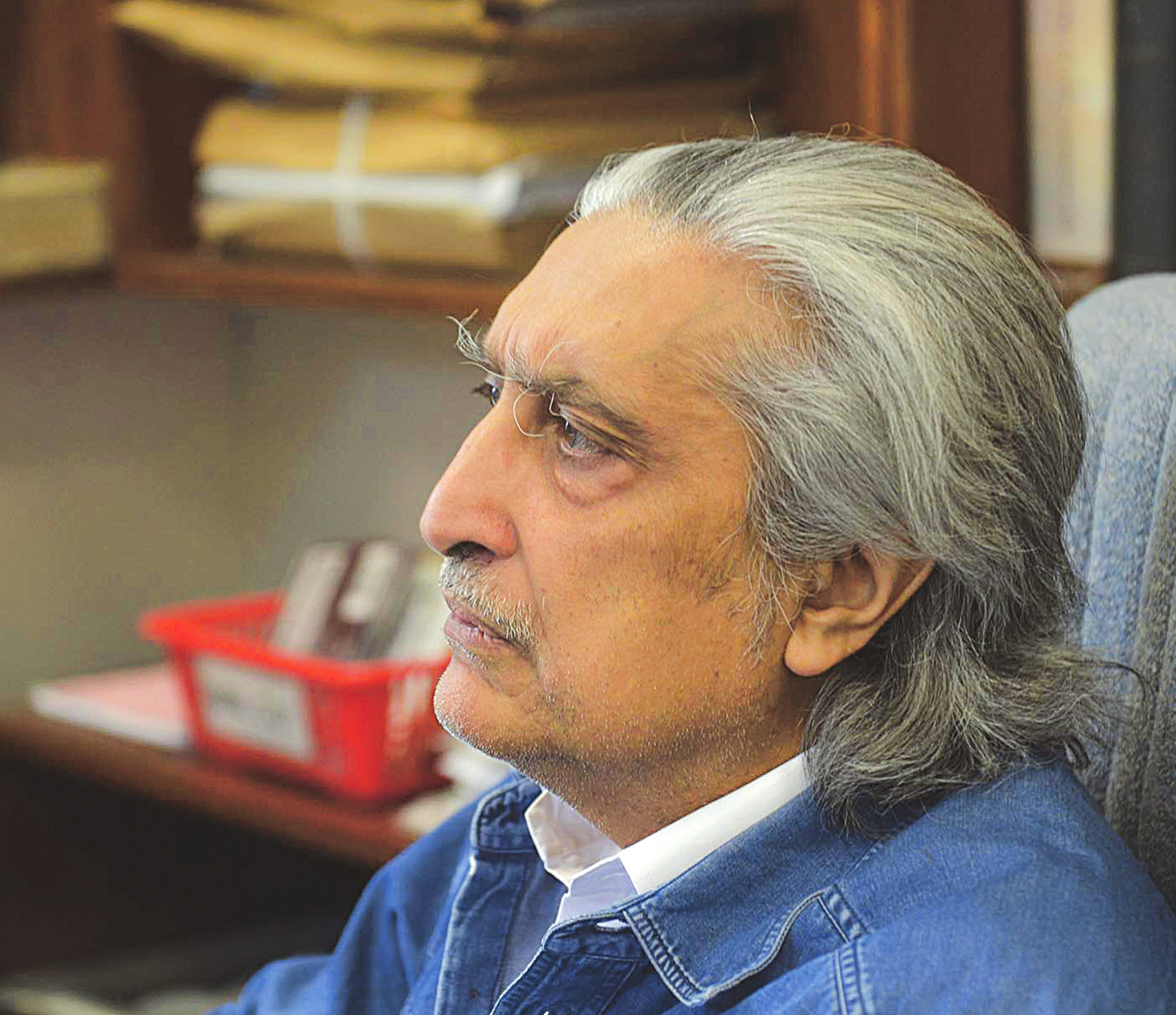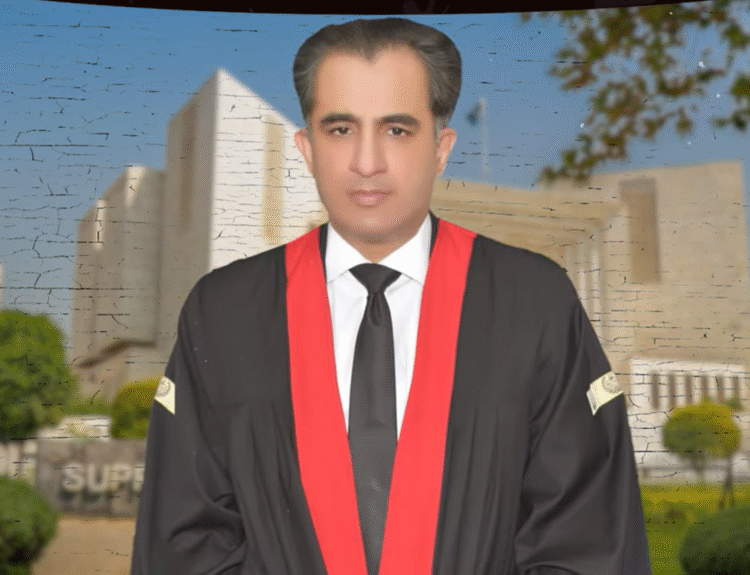TLTP REPORT –
While talking to former top judge of the country Jawwad S. Khawaja on the occasion of Eidul Fitr at Lahore over prevailing situation of reference against Supreme Court judge Justice Qazi Faez Isa, standards of the Supreme Judicial Council (SJC) and the Code of Conduct of Judges, his two disciples advocate Umer Gilani and Adil Chatha gathered expert opinion of retired Chief Justice Khawaja informally.
Q: If the Government wants to file a reference after accusing a judge of misconduct, then what is the proper procedure?
A: A reference against a judge can be filed for violating the Code of Conduct for Judges of the Supreme Court and High Courts, 2009. Procedure for filing a reference is laid down in the Supreme Judicial Council Procedure of Inquiry, 2005. It should be strictly followed.
Q: In the process of accountability of the judiciary, what is the single most important factors?
A: In my opinion, the most important factor in accountability is transparency.
Q: In your opinion, what does transparency entail?
A: There should be across the board accountability of all judges. In my opinion, selecting few particular applications for hearing and putting more than 300 applications on the back burner- does creates an impression of arbitrariness. It does not fulfill the criteria of transparency and across the board accountability.
Q: What is your point of view regarding the recent reference that has been filed against the honourable Justice of the Supreme Court, Qazi Faez Isa?
A: From the information that has come to fore and which has been published in the newspapers until now, it is clear that the reference has been filed and presented in a non-transparent manner.
Q: Is the reference against Justice Qazi Faez Isa, the only reference that has been filed recently?
A: No, that is not correct. According to reliable sources, there were more than 300 references pending before the Supreme Judicial Council before the filing of the present reference. Naturally, one wonders why a reference that has been filed only recently is going to be heard [immediately], ie on the 14th of June, while the fate of the other prior-in-time references remains unknown? In my opinion, this one act is enough to cast doubts on the proceedings of the Supreme Judicial Council.
If the Supreme Judicial Council hears references without any sequence/order, then I’m afraid the credibility of the institution would be undermined.
Q: The Supreme Judicial Council is a very important and sensitive institution of our country. Has anyone in the past raised a voice concerning its performance?
A: I personally sent a letter to the Supreme Judicial Council in January 2019 concerning the performance of the Supreme Judicial Council. In that letter, it communicated my view that while the accountability of the judiciary is an commendable step, it must be carried out in a fully transparent manner. Otherwise, the whole nation would have cause for concern. About two years ago, the Pakistan Bar Council also formally sought performance-related data from the Supreme Judicial Council. They sought information regarding the number of references which have been instituted, the number of pending references, and the decisions on the references. However, the Supreme Judicial Council refused to disclose any information at all. As a result, even today, no one knows for sure exactly how many references have been filed, how many are pending and how many have been decided. Can one call this sort of accountability transparent?
Q: What kind of things are judges prohibited from doing under the Code of Conduct of Judges?
A: The Code of Conduct for Judges (2009) has been framed pursuant to Article 209 of the Constitution of Pakistan. According to Article 2 of the Code, a judge should be “God-fearing [and] truthful of tongue”. He should be “untouched by greed.” Similarly, in Article 5 of the Code, it is stated that, a judge should not deliver speeches in any public forum outside a courtroom, nor for personal publicity. In, particular, a judge should not engage in any public controversy other than those with which he is confronted in the courtroom. It is no secret that in the last two years, these provisions of the Code have been blatantly violated. However, the Supreme Judicial Council conspicuously chose to maintain silence on those violations.
I want to point out that, in my view, conducting judicial proceedings in English language is also a clear violation of Article 251 of the Constitution. The Supreme Court’s decision on this point continues to hold field. Being violative of the law, I think this practice also constitutes a violation of the oath that judges take and, thereby, may be construed as misconduct for the purposes of the Code of Conduct for Judges (2009).
Q: According to a reported judgement of the Islamabad High Court (titled Malik Bashir vs. Federal Government of Pakistan, PLD 2019 ISB 68), several judges of the Supreme Court and High Courts of Pakistan have been allotted valuable plots of urban land by the Federal Government at nominal rates. There are some judges who even received multiple plots. Does the Code of Conduct allow for it?
A: Definitely, not! I have previously expressed my opinion that judges are not entitled to receive plots of land and other additional benefits from the government since judges are not employees of the government nor should they be government loyalists. Obtaining valuable plots from the Government for peanuts amounts to receiving gifts which is in violation of the Code of Conduct. From what I have heard, many judges have received such plots on account of their office. I think the Supreme Judicial Council should take notice of this matter. My opinion on this point has been reported earlier, about two years ago, in a story published by a journalist in The News.
Q: While you were a judge of the Supreme Court, Justice Qazi Faez Isa was also serving as a member of the judiciary. As a professional colleague, what is your opinion of him?
A: In person, I met Justice Qazi Faez Isa for the first time in 2009 when he was serving as the Chief Justice of Balochistan High Court. Before this, I had never met him in person, although I had heard of him. After he was appointed as a judge of the Supreme Court, we heard many cases together. In my opinion, he is a man of unimpeachable character and honesty. He is not driven by greed. He is engrossed in discharging the duties of his office. While I have never discussed this matter with Justice Isa, I think he is one of those few judges who chose not to receive any plot from the government. That is my opinion. The Supreme Judicial Council can ask him for itself.
Q: In your view, who makes for a good judge?
A: A good judge is someone who faithfully abides by the law and the Constitution. He is someone who possess the qualities enumerated in the Code of Conduct, the most important of which is being bold and fearless. A good judge is someone who has the guts to go after every oppressor, especially every powerful oppressor, hold him accountable and make him comply with the command of the law.
__________________________________________________________________________________________________________________
Copyright The Law Today Pakistan (TLTP) 2019




